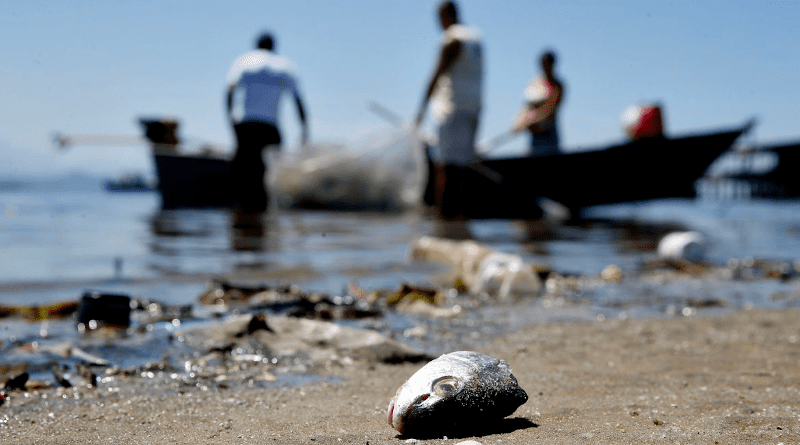Brazil: Fishermen To Be Paid For Collecting Sea Trash In São Paulo
By ABr
By Camila Boehm
São Paulo’s Forest Foundation (FF), linked to the state’s Secretariat of Infrastructure and Environment, this week unveiled the Mar Sem Lixo project (“Garbage-free Sea”), with incentives for environmental services. The initiative benefits artisanal shrimp trawlers who collect garbage from the sea while fishing, with payments of approximately $126.28 a month on a meal card.

The project includes fishermen working in the municipalities of Cananeia, Itanhaém, and Ubatuba, across environmental protection areas Litoral Sul, Litoral Centro, and Litoral Norte. More municipalities along the coast of São Paulo should be covered in the future.
The project should “encourage the removal of solid waste from the sea environment, as garbage in the sea is an old problem.” An estimated 12 million tons of garbage are discharged into the sea every year worldwide, the foundation reported.
A portion of the fishermen on the São Paulo coast already collect waste from nets voluntarily, but some still throw residues from shrimp trawling back into the sea. The initiative seeks to encourage them to bring the waste to the continent and dispose of the trash correctly, paying them for the service. The amount depends on the volume of garbage collected monthly.
Stations will be installed to receive the garbage. Among the materials most commonly found in the marine environment are plastic—including supermarket bags, wrappers, and packaging—beverage cans, glass, tires, and fabric.
“The negative effects of garbage on sealife are documented across over 1,400 species. More than 660 species are directly impacted on a daily basis, leading to death by starvation and asphyxiation. Ninety percent of seabirds are reported to have fragments of plastic in their stomachs, and at least a thousand sea turtles die from ingesting plastic or entangled garbage every year,” the foundation declared.

